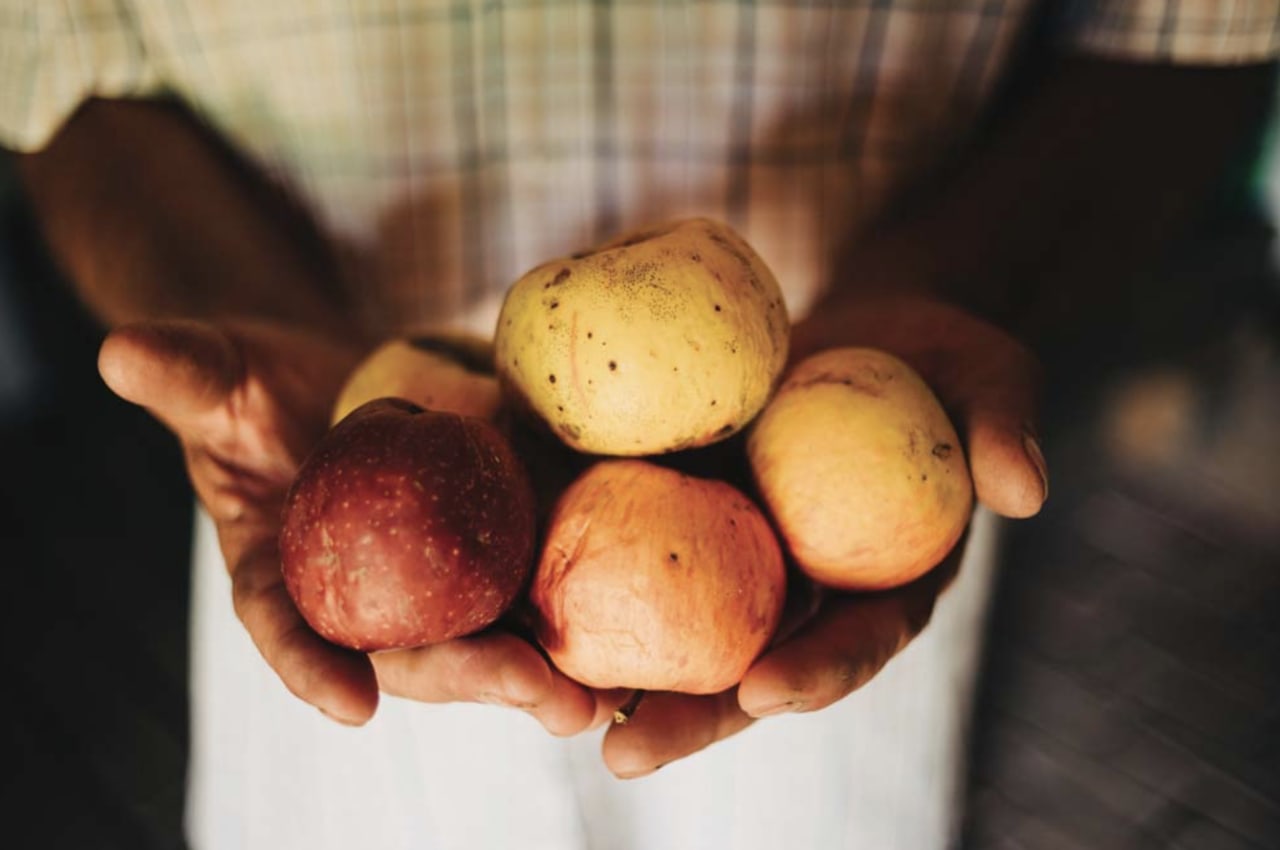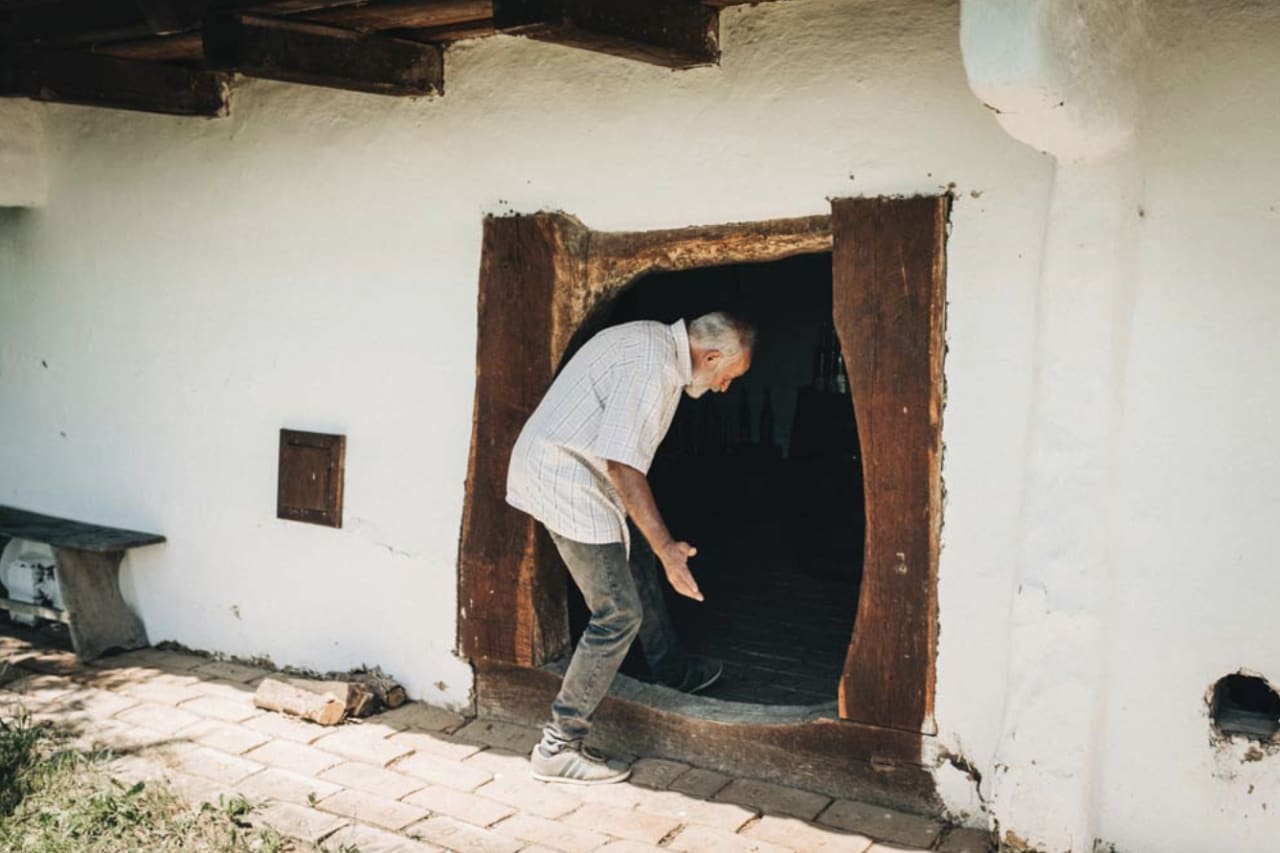He is the Master of Europe's largest single-nation fruit collection, the “Béla Bartók” of the ancient Carpathian Basin orchards.
Born in 1962 in Nova, in Göcsej Region and raised in Pórszombat, Hungary. Over the last four decades he has saved more than three thousand five hundred rare fruit varieties and has created Europe's largest single-nation fruit collection, the Pórszombat GenBank. He is the founder and spiritual father of the Hungarian Fairy Gardens movement. He summarized the heritage of folk orchards in his book about the old apple trees of Göcsej and Őrség, published in 2014. In 2015, his work was recognized with the Hungarian Heritage Award, and in 2019 he was nominated in the Highlights of Hungary field, which highlights the country's value-creating initiatives. He is married and has three sons who assist him.

He has created a palm-sized orchard on the western border of the former Göcsej Lawns, Hungary - with his own resources. To this day, he is still grafting the rare trees, but he has stopped counting after got to three thousand five hundred varieties he has saved. Red prickly pear, buckthorn, sooty apple, autumn rabbit-head briar and their companions, thousands of flavors from the past thousand years, or a piece of God's most beautiful orchard, thanks to the obsessive orchardist Gyula Kovács from Pórszombat.
“Western Europe didn't even know pants yet, we in Hungary already distinguished between fruit varieties. Only the small Hungarian micro region of Göcsej had more varieties of pears than the entire country of France!”
The standardized, wax-treated, Australian Granny Smith apples and the French-bred Bosc Kobak imported pears in the hypermarkets look beautiful, but what do we have to do with them, and what do they have to do with the one thousand three hundred kinds of pears and also more than a thousand kinds of apples that Gyula Kovács collected in the Carpathian Basin from the late eighties to the present day. In his cellar in Medes, built in the 1700s, he has sheltered the last fragments of the decaying folklore of Göcsej. Since the introduction of the pálinka law in 2008, he has distilled a hundred and twelve varieties of the old pears of Göcsej alone, and his first pálinka was made from special native thorny pears. An their flavor?
"From early-ripening fruit, pálinka is like a Liszt Rhapsody, and from late-ripening fruit, it's like a requiem,"
"Once, as a forester, my journey took me to the border of Göcsej and The Őrség a good thirty-five years ago. On the side of the road, an old man in his nineties was picking buckhorn. I helped him pick and he told me a story. He had about thirty other kinds of pear trees in his garden, and I picked some of them into the basket too. When he noticed it, he said to me: that's not going to be as good. His pálinka could only be made from the goat's bark variety. I wasn't a fan, because in socialist times they made spirits from anything (even socks as we used to joke about) , but I was curious about his real pálinka and went back a few weeks later. I was speechless when I tasted it. That's when I realized that you can make pálinka from fruit, no sugar, no yeast, no pectin extractor, using nothing but the fruit. Even then, few people knew this, although pálinka in Göcsej was probably like this a long time ago”

He wanted to understand why dozens of different types of fruit, mostly different, were once needed in a single garden, and why people today are satisfied with a fraction of that. If they still plant fruit trees at all...
Bereczki dreamt of turning Hungary into God's most beautiful orchard, only to have his dream dashed by history. Every age has done its share by failing to treat the exceptional pomological (the science of growing fruit) heritage of the Carpathian Basin as a value to be preserved as a whole. "I understood that we need a living community alongside the gardens. People who embrace, preserve and pass on not only the trees but also the spirit. That's how I got the idea for Fairy Gardens," he recalls. The final, decisive impetus for the collection work and the creation of the gene bank in Pórszombat came when he was approached a few years later with the intention of making a will. The testator had no living relatives, so he entrusted Gyula Kovács with the fate of his beloved fruit tree, the last of which he was convinced he had grown in his garden and wanted to save for posterity.
"In the early 2000s, I wanted to create a living, practical demonstration of the gastronomic heritage and medicinal knowledge of the local folk culture, with the aim of passing on this knowledge. I bought local cellars and collected authentic traditional instruments, from a wooden crusher to a wood sprayer from the time of the Philoxera. I modelled ancient processes and wanted to bring them back to life. I made vinegar the way the old people of Göcsej taught me, and I made pálinka the way they showed me,"
he says, outlining the original vision. It's no use creating lifeless shop windows, but the heritage of folk culture can only be rediscovered if we embrace it to the extent that we live by the knowledge we have learned."
Since the gene bank, which was established from the family's capital in the late 1980s, already had more than three thousand varieties by 2015, Gyula Kovács' son Tamás spent a year developing a separate IT system for the database. Two of his other sons are also involved in the rescue. Attila propagates the old varieties and Peter looks after the gardens. The family wanted to create a space for the presentation of the Hungarian pomological heritage alongside the growing community of Fairy Gardens, and they tried to integrate the gene bank somehow into the bureaucratic framework. "The trees are not growing as they should," he quotes a common official objection. The orchardist in Pórszombat doesn't deny it, it's different from today's standard: no chemicals, no pruning in the orchard. The trees grow in the natural order. In the absence of accreditation, the gene bank is not eligible for EU funding to preserve biodiversity. "You can't do without freedom. So it's down to word of mouth, donating from soul to soul," he concludes.
Source: Réka Klementisz’s interview with Gyula Kovács in the Mandiner Weekly. Photos by Gábor Muray







